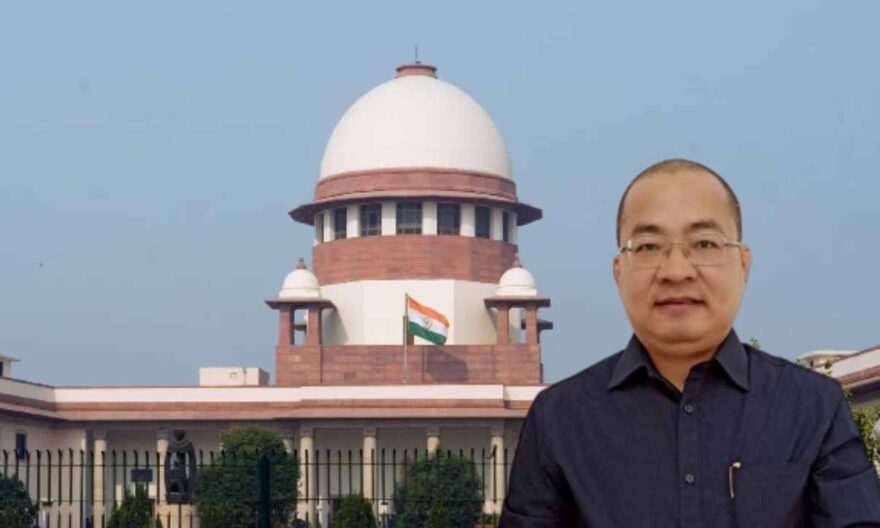
The Supreme Court on Monday passed an ordered preventing any coercive measures from being taken against Hyderabad University professor Kham Khan Suan Hausing for a duration of two weeks.
This directive comes in response to two complaints filed against him in strife-torn Manipur.
One of the complaints alleges that Hausing intentionally engaged in acts intended to offend religious sentiments in Manipur, while the other pertains to alleged irregularities in his enrollment as a voter of the state.
A bench comprising Chief Justice D Y Chandrachud, Justices J B Pardiwala, and Manoj Misra has ruled that no coercive actions should be initiated against Hausing during this two-week period. This decision aims to provide Hausing the opportunity to approach the appropriate court for necessary remedies.
Hausing had sought protection from arrest through a plea presented before the bench. Anand Grover, a senior advocate representing the professor, highlighted that both cases had been lodged against his client. He emphasized that Hausing’s need for protection was to ensure that he could pursue the appropriate legal recourse.
In response, Solicitor General Tushar Mehta, representing Manipur, argued that challenging a magistrate’s order directly before the Supreme Court under Article 32 of the Constitution was not permissible. Article 32 deals with the enforcement of fundamental rights. The magisterial court had issued summonses to Hausing in connection with one of the private complaints filed.
The bench noted that one criminal complaint against Hausing pertained to alleged offenses under various sections of the Indian Penal Code (IPC), such as Section 153-A (promotion of enmity between different groups based on religion, race, etc.) and Section 295-A (intentional and malicious acts intended to outrage religious feelings).
The court then specified that Hausing had the freedom to seek appropriate remedies, including anticipatory bail, from the relevant court.
It is pertinent to note that the Supreme Court is currently addressing a range of petitions related to the violence in Manipur. Recently, the court expressed concern over the severe atrocities endured by women in the state and underscored the need to address such grave issues. In response, a three-member committee of former high court judges has been entrusted with the task of investigating instances of violence against women in Manipur since May 4.




